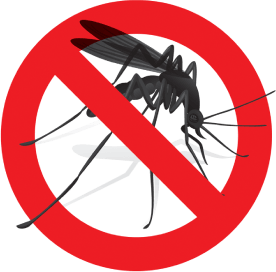
If you plan a trip to Thailand, get ready for lots of fun! You’ll see big cities and relax on pretty beaches. But first, make sure to get the right shots to keep you safe from sicknesses that you won’t find back home. Staying healthy is super important, so knowing which shots you need for Thailand is a big part of getting ready for your adventure.
Mandatory Shots for Thailand Visit
Law-Enforced Immunizations
Anyone flying into Thailand from places where Yellow Fever might happen needs a Yellow Fever shot card if they’re at least nine months old. This rule is for folks who spent over 12 hours in a layover in areas where Yellow Fever can spread. Saudi Arabia also insists on pilgrims getting shots for Meningitis and Polio.
Shots Suggested by Health Experts
Health organizations like the CDC and WHO recommend that travelers going to Thailand receive vaccinations against Hep A and Hep B. These illnesses can spread through unsanitary food and water or contact with contaminated bodily fluids. For extended stays or visits to remote locations, they also advise the Typhoid vaccine.
For protection against diseases mosquitoes carry, consider vaccinating against Japanese Encephalitis and Chikungunya if spending time in rural areas or if your trip exceeds 30 days. , a Rabies vaccine is sensible due to the prevalence in Thai canines, and receiving a Tetanus vaccine is wise because cuts can get infected with dirt.
Moreover, to prevent the international spread of diseases, stay updated with vaccinations for COVID-19 along with the Measles, Mumps, and Rubella combination shot, and a flu vaccine. This MMR vaccine is crucial as measles cases are increasing globally.
Vaccines to Get Before Going to Thailand
If you’re going to Thailand, you should get shots to keep you healthy. Make sure to get shots for Tetanus, Hepatitis A and B, Yellow Fever, and Rabies.

Tetanus
You can get Tetanus from dirt getting into cuts or burns. Most places say you need five Tetanus shots for your whole life. You might need an extra shot if you hurt yourself and can’t get treated right away. Check if you need another Tetanus shot before you travel if you might get cuts or scrapes.
Hepatitis A spreads when people eat dirty food or water or when they touch each other and then their mouths. If a place doesn’t keep things clean, people can get it more. Babies who are 6 to 11 months old and traveling should get a vaccine shot, but it doesn’t count as part of the normal 2-shot series. Hepatitis B can catch you if you touch infected blood, use needles someone else uses, or have sex with someone who has it. People who stay in a place for a long time, travel a lot, or might need a doctor while they’re away are more at risk. Doctors say travelers who haven’t had the shot yet, especially if they’re already sick with something else, should get vaccinated.

Yellow Fever Vaccine
Travelers 9 months and older must get a Yellow Fever vaccine if they come from places where the Yellow Fever virus spreads. This rule also applies to those who spend over 12 hours in an airport in one of these places. Thailand doesn’t have Yellow Fever, but visitors still need to show they got the vaccine to stop the disease from coming in.

Rabies Shots
Rabies can spread through the spit of sick animals like dogs, cats, bats, and monkeys. It happens from bites, scratches, or spit on skin that has been cut. People who like to spend time outside, such as going on hikes or bike rides, or those who work with animals, face a bigger chance of getting Rabies. Experts say these travelers should get their shots before the trip. If someone gets bitten, Thailand has vaccines for them to take right after.
Travelers who get these vaccines can lower their chance of getting sick from these bugs and have a safer trip in Thailand.
Stay Safe from Mosquito Illnesses

How To Stop Malaria
Malaria hits mainly rural and forest spots in Thailand near borders with Burma (Myanmar), Cambodia, Laos, and southern areas next to Malaysia. It spreads all year, with more cases in the rainy season. Doctors say travelers should take meds like atovaquone-proguanil, doxycycline, or tafenoquine to stop malaria. Start these pills a few days before the trip, keep taking them while there, and don’t stop until after you come home from these dangerous spots. In city and tourist places like Bangkok, Chiang Mai, and Phuket, malaria is not common so just stopping mosquito bites does the trick.
Dengue fever is widespread in Thailand during the rainy season. People have also found the Zika virus there, but no new outbreaks have happened. Daytime mosquitoes that love cities spread both illnesses. Travelers must always use bug spray, put on shirts with long sleeves and pants, and take extra steps like using bed nets and putting screens on windows to stay away from mosquito bites. Travelers who are pregnant or want to become pregnant need to be even more careful and listen to the newest advice from the CDC because the Zika virus can cause problems for babies before they’re born.
Travelers should get a Japanese Encephalitis vaccine if they plan to spend a month or longer in Thailand in the north or near rice fields where the virus-carrying mosquitoes live. The threat of getting the virus is always there but goes up between May and October. Even people who will be in Thailand for less than a month might need the vaccine if they go to the countryside or places without good mosquito barriers.
Where to Get Vaccinated and Associated Costs
Travelers headed to Thailand can find the needed shots from many places, making sure they’re ready to go. It’s smart to know where to get shots and how much they cost to plan for your trip well.
See Your Doctor
It would be best if you first talked to your family doctor about shots for travel. They can advise before you travel, shots, and meds. Make sure to look at the list of shots and meds and see your doctor at least four weeks before you leave to get your shots. If your doctor doesn’t have some shots, they can tell you where to go.
High Street Clinics
You can easily get to High Street Clinics, where you’ll find many travel shots. They are handy because they keep shots like the ones for Japanese brain swelling, typhoid, and cholera, so you don’t have to make a second trip to the drugstore. High Street Clinics also give good travel tips and make sure you’ve got your regular shots like TDaP and MMR.
Travel Medicine Clinics
If you need specialized travel health care, you should see a Travel Medicine Clinic. They can give you all the health services you need for going abroad such as shots for yellow fever and other diseases you could catch while traveling. Places like Travel Medicine Clinics that work with the International Society of Travel Medicine can give out the ‘yellow card’ or the shot record some places ask for when you enter their country.
You need to book an appointment before you go to get these services, and you should do it before your trip. Vaccines have different prices, so ask how much they’ll cost when you book your visit. You might get a good deal on many shots at some places.
Keep in mind that the price for shots can be very different depending on where you go. It would help if you looked at different places and their prices to see which is the best for what you need and how much money you have.
Conclusion
Travelers must think about vaccine advice when they get ready for their trip to Thailand. This step is vital for their travel plans. Getting shots helps keep travelers healthy and stops sickness from spreading worldwide. Tourists can have fun times in Thailand and see its lovely places without worry if they follow these tips. They will know they did what they could to stay healthy and keep others safe, too. They should talk to doctors or look up more info to get health tips just for them and their travel plans. This makes sure they have a good and safe journey.